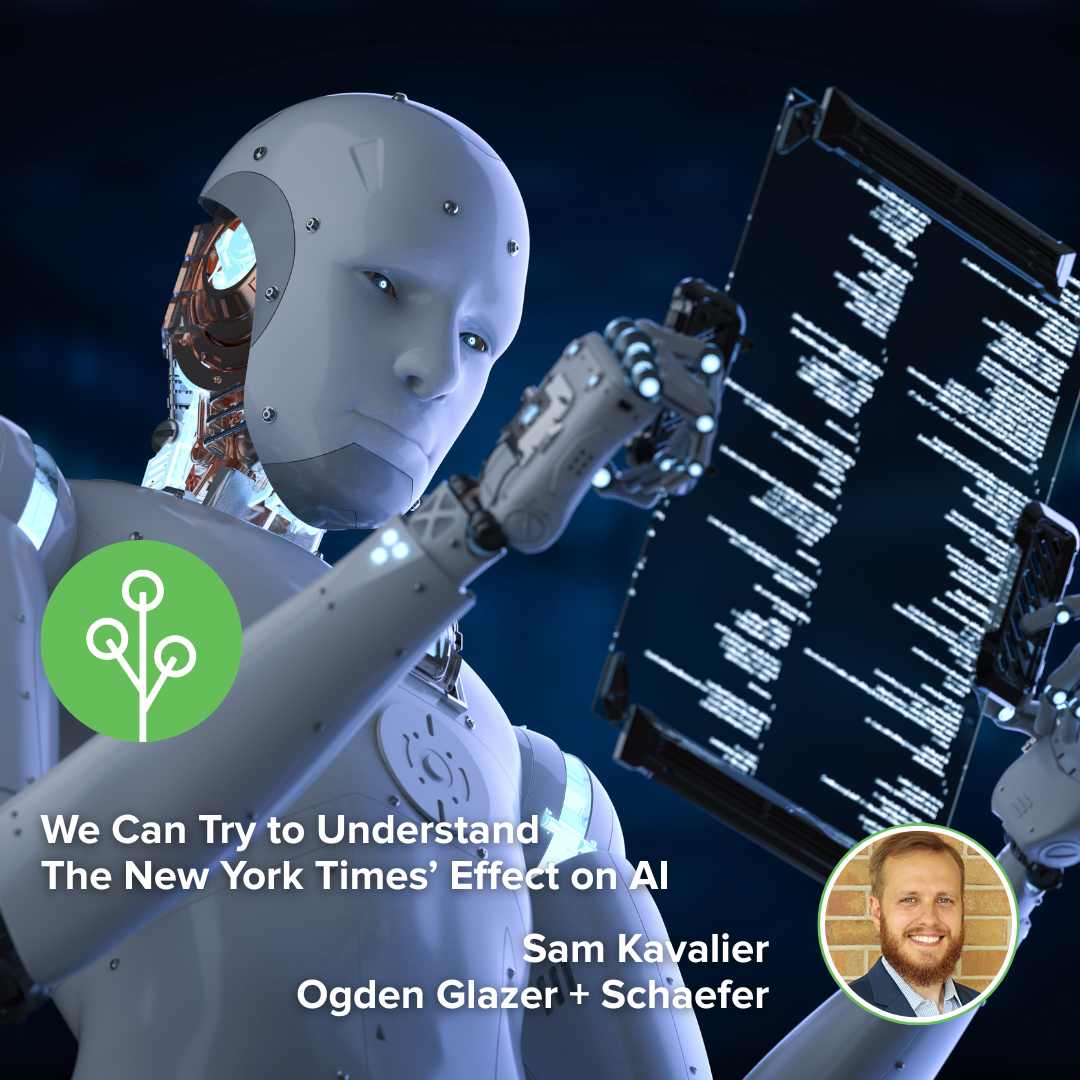You can tell by the rise of generative AI that it has generated a lot of interesting operational and legal questions. To piggyback off my colleague, Fatimeh (see her posts here and here), I wanted to look in on a specific legal dispute involving AI and copyright.
Back in 2023, The New York Times (NYT) sued Microsoft and OpenAI over allegations of copyright infringement, digital millennium copyright act (DMCA) violations, unfair competition, and trademark dilution. In short, NYT alleged that in the process of OpenAI scrubbing public websites (including the Times’ website) to provide data for the large language model driving ChatGPT, and generating new works from that data, OpenAI was infringing on NYT’s IP rights. In a few more words:
- The copy of NYT’s content in OpenAI’s model was a literal copy of that content, and ChatGPT also generated content that are derivative works, thus infringing on NYT’s copyrights.
- The scraping process circumvented NYT’s copyright management information, and thus violated the DMCA.
- ChatGPT offers summaries and excerpts from NYT content, thus undercutting NYT’s immense outlay of resources in news reporting.
- ChatGPT produces content that is attributed to NYT, but is inaccurate or lower quality than NYT’s content, thus diluting NYT’s trademarks.
OpenAI and Microsoft moved to dismiss the lawsuit. By doing so, they were trying to get the court to determine that there was no legally actionable claim to be made, and that the lawsuit should not proceed. Last month, the court issued an order dismissing some of the claims (mostly centering around the DMCA and unfair competition claims), while allowing the others to continue. For now, the judge has not yet issued an opinion elaborating on the order.
Whether the order’s a winner or whether it’s a stinker depends on the eye of the beholder. It may seem like a wine for NYT, but this is still pretty early on in the litigation, and there is still plenty of litigation yet to be seen. For now, this IP attorney will continue watching with intrigue to see how this bellweather of a case influences the future of IP law and the utilization of AI tools.
Thanks for reading!

